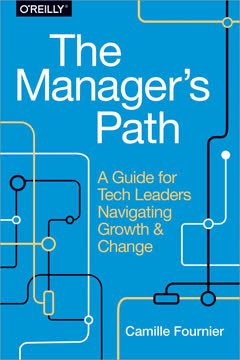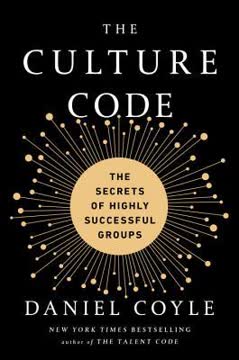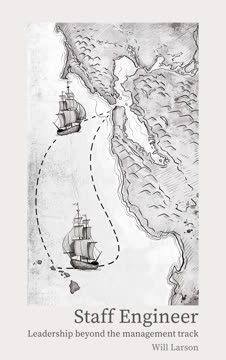重点摘要
1. 优秀的管理者是培养出来的:通过实践锻炼关键技能
我坚信一件事:优秀的管理者不是天生的,而是后天培养的。
管理是一项可以学习的技能。像其他技能一样,成为一名出色的管理者需要投入时间、不断练习,并且愿意从错误中吸取教训。成为有效领导者的过程包括培养以下关键能力:
- 沟通:清晰传达期望和反馈
- 同理心:理解并支持团队成员的需求
- 决策力:做出有利于团队和组织的明智选择
- 冲突解决:处理并化解人际矛盾
- 战略思维:设定并朝着长期目标努力
拥抱学习的过程。认识到犯错在所难免,将其视为成长的机会。主动寻求团队、同事和导师的反馈,持续提升管理能力。即使是经验丰富的管理者,也会面临新挑战,必须适应不断变化的环境。
2. 与团队建立信任:营造开放沟通与支持氛围
信任是最重要的基石。
创造心理安全感。营造一个让团队成员敢于表达想法、担忧和建议的环境,无需担心被评判或报复。这种开放氛围促进创新、解决问题,并增强团队归属感。
建立信任的关键策略:
- 对决策和挑战保持透明
- 履行承诺
- 承认自身错误和脆弱
- 积极倾听团队成员的观点
- 在困难时刻提供支持
展现真诚关怀。关注团队成员的个人和职业成长,提供指导、资源和发展机会。当团队成员感受到你真心为他们着想时,更愿意信任你的领导,发挥最大潜力。
3. 发挥优势:助力团队在专长领域出彩
招聘卓越领导,打造自驱团队,确立清晰愿景,沟通顺畅。
识别并利用个人优势。花时间了解每位成员独特的才能、技能和兴趣,分配能发挥其优势的任务和项目,从而提升参与度、生产力和工作满意度。
发挥优势的策略:
- 定期交流职业目标和愿望
- 提供技能提升和成长机会
- 鼓励优势互补的协作
- 认可并庆祝个人及团队成就
营造持续改进的文化。在关注优势的同时,也鼓励成员在不擅长的领域成长,培养将挑战视为学习和发展的成长型思维。
4. 掌握反馈艺术:有效提供建设性批评与表扬
反馈的最佳状态,是让人自豪地实现转变。
平衡正面与建设性反馈。既要表扬优秀表现,也要指导改进方向。经常认可成就能提升士气和动力,建设性批评则帮助成员成长和提升技能。
有效反馈的原则:
- 具体且及时
- 聚焦行为和结果,非个人特质
- 提供可行的改进建议
- 鼓励双向对话,倾听反馈接受者的观点
- 跟进确保理解并支持进步
营造反馈丰富的环境。将反馈常态化,成为团队互动的日常。鼓励同伴间反馈和自我反思,促进持续改进和开放沟通的文化。
5. 了解并管理自我:认识自身优势、弱点与触发点
每个人都有“冒牌者综合症”的时刻。
培养自我觉察。定期反思自身优势、弱点和情绪触发点。更好地了解自己,有助于管理情绪反应,做出更明智的决策,并以真诚的态度领导。
自我管理的策略:
- 练习正念与反思
- 主动寻求他人对自己表现和行为的反馈
- 识别并挑战自身偏见和假设
- 发展应对压力和困难的机制
- 持续追求个人和职业成长
以身作则。展现脆弱和自我提升的决心,分享自己的学习经历和成长领域,鼓励团队成员同样开放,营造持续发展的文化。
6. 召开高效会议:明确目标,鼓励参与
目标不是减少会议,而是开好会议。
有目的地规划。安排会议前,明确会议目标和预期成果。确保邀请合适人员,议程聚焦且与所有参与者相关。
高效会议的要素:
- 提前分享议程和预习材料
- 准时开始和结束
- 鼓励所有与会者积极参与
- 明确分配行动项和后续任务
- 定期评估并优化会议流程
促进包容与参与。营造让每个人声音被听见和重视的环境。采用轮流发言、小组讨论或匿名提案等方式,鼓励内向成员参与。
7. 精准招聘:重视团队建设与文化契合
招聘是你能做的最重要的事。
明确理想候选人。在招聘前,清晰描述岗位所需技能、经验和符合团队文化的品质。
招聘关键考量:
- 评估技术能力与软技能
- 寻找能补充团队优势的候选人
- 考虑长期潜力和文化契合度
- 邀请团队成员参与面试
- 进行背景调查和全面评估
营造积极的候选人体验。招聘是双向选择,尊重候选人,及时反馈,展示团队文化和价值观,吸引顶尖人才。
8. 有目的地执行:平衡短期目标与长期愿景
完美执行胜过完美策略。
设定清晰优先级。明确团队最关键的目标,让每个人都理解自己的工作如何助力整体目标。持续沟通并强化优先事项,保持专注和一致。
高效执行的策略:
- 将大目标拆解为具体可行的任务
- 设定明确时间表和里程碑
- 定期跟踪进展,灵活调整计划
- 鼓励在限制内发挥创造力和解决问题
- 庆祝阶段性成果
保持战略视角。专注日常执行的同时,不忘回顾整体方向,确保短期行动与长期目标一致,必要时做出调整。
9. 随团队成长调整管理风格:有效授权
我所认识的最佳管理者都认同一点:打造优秀团队,就是不断寻找替代自己当前工作的方式。
角色演变。随着团队壮大,从直接管理转向赋能和培养团队领导。专注于设定方向、排除障碍,确保团队拥有成功所需的资源和支持。
有效授权策略:
- 明确传达期望和目标
- 提供必要资源和权限
- 支持指导但避免过度干预
- 鼓励创造性和责任感解决问题
- 认可并奖励成功执行
培养领导梯队。识别并培养潜在领导者,给予他们更多责任和管理技能发展机会,确保团队持续成长和成功。
10. 培育积极团队文化:行动与价值观保持一致
文化是规范和价值观,指导事情如何完成。
定义并传达核心价值观。清晰表达对团队成功最重要的原则和行为,通过言行不断强化,表彰体现价值观的成员。
塑造文化的策略:
- 以身作则,践行团队价值观
- 创造传统和仪式,强化期望行为
- 及时且一致地处理文化偏差
- 团队共同庆祝成功,吸取失败教训
- 定期收集团队文化反馈,持续改进
营造归属感。打造包容环境,让每位成员感到被重视和尊重。鼓励协作,支持多元思维,创造团队凝聚力和共享体验的机会。
最后更新日期:
FAQ
What's The Making of a Manager about?
- Focus on New Managers: The book is a guide for new managers transitioning from individual contributors to leaders, addressing the challenges and responsibilities they face.
- Three Key Themes: Julie Zhuo emphasizes Purpose, People, and Process as essential elements for effective management.
- Personal Journey: Zhuo shares her experiences managing teams at Facebook, providing relatable anecdotes and practical advice.
Why should I read The Making of a Manager?
- Practical Guidance: Offers actionable insights and tools that new managers can apply immediately to improve their management skills.
- Real-Life Examples: Uses experiences at Facebook to illustrate key concepts, making the advice relatable and grounded in reality.
- Support for Growth: Encourages readers to embrace their journey as leaders, reassuring them that management skills can be developed over time.
What are the key takeaways of The Making of a Manager?
- Management is Learnable: Zhuo asserts that "Great managers are made, not born," emphasizing that anyone can become an effective manager with the right mindset and effort.
- Importance of Trust: Building trust with team members is crucial for effective management, fostering open communication and collaboration.
- Feedback is Essential: Regular, constructive feedback helps team members grow and align with expectations, making it a vital part of a manager's role.
What is the definition of management according to The Making of a Manager?
- Getting Better Outcomes: Management is defined as "the belief that a team of people can achieve more than a single person going it alone."
- Focus on Team Dynamics: The role of a manager is to facilitate collaboration and ensure that the team works effectively towards shared goals.
- Long-Term Vision: Involves supporting team members in their career growth and development, beyond day-to-day tasks.
What are the best quotes from The Making of a Manager and what do they mean?
- "Great managers are made, not born.": Emphasizes that management skills can be developed through experience and learning, rather than being innate traits.
- "You must trust people, or life becomes impossible.": Highlights the fundamental role of trust in management for effective communication and collaboration.
- "Feedback is a gift.": Underlines the importance of giving and receiving feedback as a means of growth and improvement for both managers and their teams.
How can I build trust with my team as suggested in The Making of a Manager?
- Open Communication: Engage in honest conversations with your team about their challenges and successes, fostering a safe environment for sharing.
- Be Vulnerable: Share your own mistakes and growth areas to show that everyone, including managers, is on a learning journey.
- Consistent Support: Demonstrate care for your team’s well-being and success by being available and responsive to their needs.
What is the significance of feedback in The Making of a Manager?
- Clarifying Expectations: Feedback ensures team members understand what is expected of them and how they can improve.
- Encouraging Growth: Constructive feedback motivates individuals to develop their skills and strive for better performance.
- Building Relationships: Regular feedback fosters a culture of trust and open communication, strengthening the manager-report relationship.
What are the three buckets that managers should focus on according to The Making of a Manager?
- Purpose: Ensure the team understands overarching goals and why their work matters, aligning everyone towards a common vision.
- People: Understand team members' strengths, weaknesses, and motivations for effective management and team dynamics.
- Process: Establish clear processes for team collaboration to streamline operations and improve efficiency.
How does The Making of a Manager suggest handling difficult conversations?
- Be Direct and Honest: Address issues head-on without sugarcoating, ensuring the message is clear and understood.
- Use Specific Examples: Provide concrete instances to illustrate your points, making it easier for the recipient to grasp the feedback.
- Create a Safe Environment: Approach conversations with empathy and a genuine desire to help, encouraging openness and reducing defensiveness.
What advice does The Making of a Manager offer for new managers in their first three months?
- Listen and Learn: Understand team dynamics, existing processes, and individual strengths and weaknesses before making changes.
- Establish Relationships: Build trust and rapport with team members through regular one-on-one meetings and open communication.
- Set Clear Expectations: Clearly communicate your vision and what success looks like for the team to align everyone’s efforts.
What specific management skills does Zhuo emphasize in The Making of a Manager?
- Communication Skills: Highlights the necessity of clear and open communication within teams, creating a safe environment for expression.
- Decision-Making: Discusses the importance of effective decision-making processes, ensuring decisions are made with all relevant stakeholders.
- Delegation: Emphasizes the art of delegation, empowering team members by giving them significant responsibilities as a sign of trust.
How does Zhuo suggest conducting effective meetings in The Making of a Manager?
- Define Purpose and Outcome: Every meeting should have a clear purpose and desired outcome to guide the planning process.
- Invite the Right People: Ensure only necessary participants are invited to maintain focus and efficiency.
- Encourage Participation: Use structured approaches to ensure engagement, such as giving everyone a chance to speak.
评论
《成为一名经理人》因其实用且贴近生活的管理建议而广受好评。读者们欣赏卓的对话式语气以及她在Facebook工作经历中提供的具体案例。该书因其对领导力、团队建设和反馈技巧的深刻见解而备受赞誉。尽管有人批评其过于聚焦硅谷背景且缺乏颠覆性创新,但许多读者认为它对新晋经理或有意向管理岗位的人尤其有帮助。总体来看,评论者普遍推荐此书,认为它是提升管理技能和理解团队动态的宝贵资源。
Similar Books













